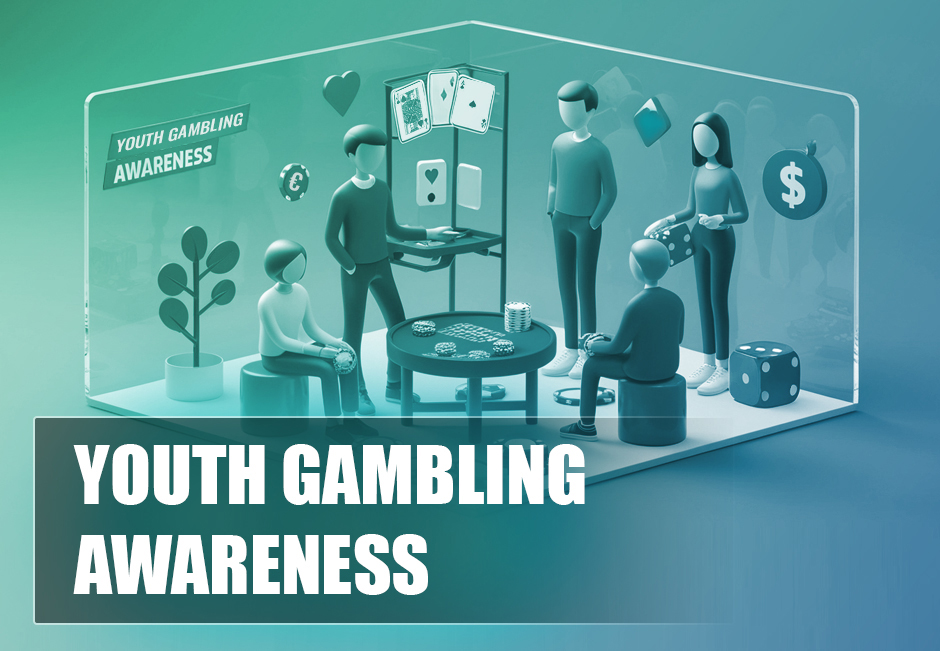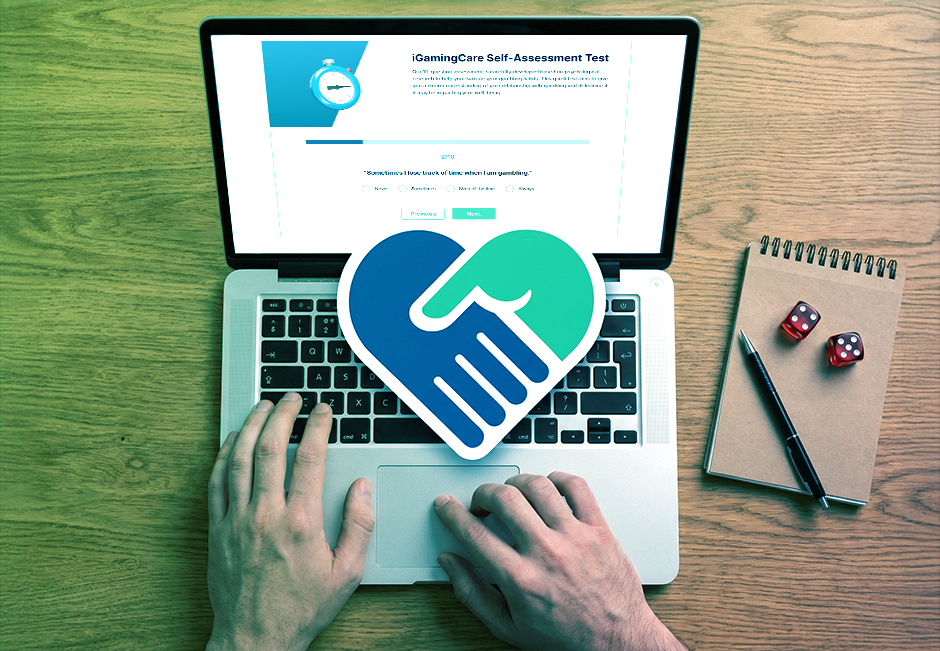
The Impact of Youth Gambling Awareness Initiatives

While the legal gambling age is typically 18, many countries face issues of underage gambling. According to a 2024 report by the UKGC, 52% of young people have gambled at some point in their lives, although not necessarily for money. That’s why it’s essential to have strong online gambling education initiatives and programs. Check out our article to learn more about some of these projects and their effect.
Spread of Youth Problem Gambling
Underage gambling has seen a rise in recent years. The UKGC released a 2024 report, where Ipsos surveyed 3,896 students aged 11-17. Of those surveyed, 52% have gambled at some point, though that includes crane games at arcades and lotteries. Meanwhile, 21% spent money on regulated gambling, with 1.5% experiencing problem gambling. Youth problem gambling statistics show that 190,000 are experienced or are at risk of problem gambling.
Another interesting find is that of the 26% of those who have seen family members gamble, 12% claim it helped their family earn money. Most respondents found gambling fun, but only 8% were prompted to gamble by advertisements. However, a concerning 11% took money without asking, and 3% would lie about gambling.
“Our report points to the opportunities that parents, schools and other groups have to also help reduce gambling harm among children and young people.”
Tim Miller, UKGC Executive Director
The UKGC’s Executive Director, Tim Miller, commented that the responsibility for preventing underage gambling extends to parents and schools. Young people must be educated on gambling and its adverse effects while also promoting gambling education resources that can help them overcome addiction. For example, a study by Parrado-Gonzáles and León-Jariego in 2019 found that good family support can help prevent addiction, even if young people are exposed to advertisements.
The Big Deal: GamCare’s Educational Program
Many professional gambling support organizations, like GamCare and GambleAware, have initiatives to help young people struggling with problem gambling. BigDeal is a program that allows young people to contact professionals and learn more about gambling, similar to New York’s YOU Decide. They can also help them with support plans to overcome problem gambling and even have a live chat and phone support.
Some of BigDeal’s initiatives included a campaign for university students in 2020, teaching them about problem gambling, highlighting the reasons it may occur, and educating them on how to get support. As of 2023, the online gambling education program has educated 100,000 youths and has trained 25,000 professionals, such as teachers, to ensure young people have an accessible gambling education network.
“I am proud to be part of the YAB as our sessions revolve around making changes and improving society, hence why I continue to attend the weekly sessions and would like the YAB to become even bigger, so that we can have a greater influence on others.”
Camila, Youth Advisor at YAB from 2023-24
Aside from teaching them about gambling, BigDeal also involves youths through the Young Adults Advisory Board. There, young people between 11 and 18 act as advisors, helping others through workshops or social media campaigns for Christmas.
The project has helped GamCare prepare reports like the youth view on gambling advertising regulations. The program provides effective support by involving young people directly and creating a gambling education network.
Effective Gambling Education
Another crucial method to preventing youth gambling addiction is education. In a study conducted by Hundric et al., researchers found that a program launched in Croatian cities had positive short-term effects in preventing addiction. The study found that risky behavior is tied to false knowledge about probability, and a good education program can reduce problem gambling.
However, it also stresses that practical activities are necessary to ensure young people develop critical thinking and refusal skills for a long-term effect. Organizations like GamCare host workshops at schools, where students can learn how the industry operates and how problem gambling can be harmful. Students can also ask questions and talk openly about their experiences.
“People never think it’s going to be them. It’ll never be that young 15-year-old who has their first bet.”
Declan Cregan on his addiction
Many other organizations, like the Gambling with Lives charity, also have their own online gambling education initiatives. For example, the charity works with Declan Cregan, who had an addiction when he was 17, to host presentations and talk to students. Meanwhile, Ygam provides programs where teachers and parents can learn about gambling and how to support young people.
Parental Help and Better Laws
The effectiveness of gambling education resources is undeniable, as 77% of children in the UK reported they feel better informed about gambling. However, the responsibility does not fall on young people alone, as the country is also working on new laws. As part of its reform for the Gambling Act, it will include several provisions relating to a player’s age:
- All operators, including smaller land-based casinos, must have age verification systems.
- Operators must verify the age of any player who appears to be under 25, previously 21.
- Online slots must have a £2 maximum stake limit for players between 18 and 24.
The Youth Advisory Board was consulted three times on these reforms, allowing young people to provide insight on better protecting them from youth gambling addiction. Citizens in Northern Ireland have also expressed a desire for better laws, with Sinn Féin MLA Philip McGuigan even claiming it’s out of date and that problem gambling affects entire communities.
In the meantime, parents can also help protect their children. In the UKGC’s 2024 report, 26% of young people have seen family members who gamble. GamCare advises parents to help their children develop a healthy understanding of gambling and talk to them while they’re young. They can use various parental controls to help keep their children safe.
Challenges and The Future
One of the biggest challenges faced by these gambling education networks is funding. For example, GamCare is funded by GambleAware, donations, and sometimes funds are received from government organizations like the Gambling Commission Regulatory Settlement Fund. However, many charities have also expressed that this type of funding can be unpredictable, and more sustainable methods are needed.
Some organizations, like the YGMA, have special events to raise funds and awareness of their programs, like the 10for10 Challenge. One of the Gambling Act reforms also includes a mandatory RET levy of 1% for online operators and 0.4% for traditional betting shops and casinos.
“In order to have a meaningful impact on gambling harm at a population level across Great Britain, prevention must be reprioritized with additional funding.”
Zoë Osmond, GambleAware CEO
However, this proposal is still being debated, with some, like former YGAM CEO and founder Lee Willows, being against it, while GambleAware’s CEO Zoë Osmond is in favor. While this issue is still discussed, most charities are focused on the future, which includes addressing illegal gambling sites and continuing to raise awareness of youth gambling addiction.
Conclusion
Responsible gambling programs for young people have had great success and significantly help reduce problem gambling among youths. Aside from educating students on problem gambling, they also provide gambling education resources to parents and professionals, ensuring children can receive proper support. Finally, they also work directly with the government when preparing new legislation.
Youth gambling statistics show that there is marked improvement in education, as 81% of young adults and kids feel well-informed about the risks, compared to 70% in 2023. Overall, a good gambling education network can help prevent addiction and allow children to openly talk about issues, as 66% of them have said someone wanted to talk about gambling issues, as opposed to 2023’s 54%.

